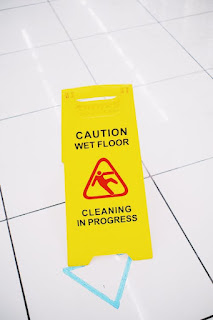In the case of
Kunsman v. Wawa, Inc., No. 2017-23859 (C.P. Montg. Co. June 2, 2023 Saltz, J.), the court issued a Rule 1925 Opinion requesting that the Superior Court affirm the verdict in favor of the Defendant in a slip and fall case.
According to the Opinion, the Plaintiff allegedly slipped and fell on a yellow-painted surface in the parking area at the Defendant’s store.
One of the issues on appeal was the trial court’s ruling on the Defendant’s Pre-Trial Motion In Limine to prevent the Plaintiffs from offering evidence of prior lawsuits or claims against the Defendant. The subject of that motion was a list of fourteen (14) prior claims, each of which involved in a slip and fall accident on yellow traffic paint, which information was provided to the Plaintiff by the Defendant in discovery.
During depositions, the Defendant’s Senior General Liability Specialist indicated that only one (1) of the fourteen (14) claims was at the same store where the Plaintiff fell.
In the end, the trial court authorized the admission of the evidence of that particular claim, but not the others.
In this Opinion, the court noted that the Plaintiff did not sustain their burden of proving that the claims of the other prior incidents on the list, other than the incident that occurred at the same store, were “sufficiently similar” under the “sufficiently similar circumstances” test. The trial court requested the Superior Court to affirm its decision in this regard.
Another issue in this case was the Plaintiff’s objections to the jury instructions relative to the failure of the Defendant to produce any video footage of the subject incident.
At trial, the assistant general manager of the store testified that he sent to the Defendant’s corporate headquarters surveillance video camera recordings that he thought had captured the accident.
However, the store’s general manager then testified that there were no cameras in a place that had a view of the site of the incident.
Prior to trial, the court had directed the Defendant to provide the Plaintiff with all videos from the date of the accident taken at any location at the store.
The Defendant did so and none of the videos included the site of the accident.
At trial, the Plaintiff requested that the jury be provided Suggested Standard Jury Instructions §5.60, addressing spoliation of evidence. The trial court denied that request and instead instructed the jury under §5.30, regarding the failure to produce evidence.
As noted above, in the end, the jury found that the Defendant store was not negligent.
As part of its appeal, the Plaintiff stated that the trial court erred by instructing the jury on the failure to produce evidence standard rather than the spoliation of evidence jury instruction.
The trial court noted that the Plaintiff’s argument in this regard should not be upheld as the jury instruction on the failure to produce evidence was substantially the same as the instruction regarding spoliation of evidence. The court stated that the Plaintiff did not demonstrate any prejudice from the use of the instruction actually provided to the court. The court also noted that it was within its discretion in deciding which instruction to use.
Here, in light of the conflicting evidence about the existence of any applicable video recording, the court noted that the jury was properly allowed to draw an adverse inference if it found that the Defendant had possessed a video but had not produced it.
Anyone wishing to review a copy of this decision may click this
LINK.
Source: “Digest of Recent Opinions.” Pennsylvania Law Weekly (July 4, 2023).


























